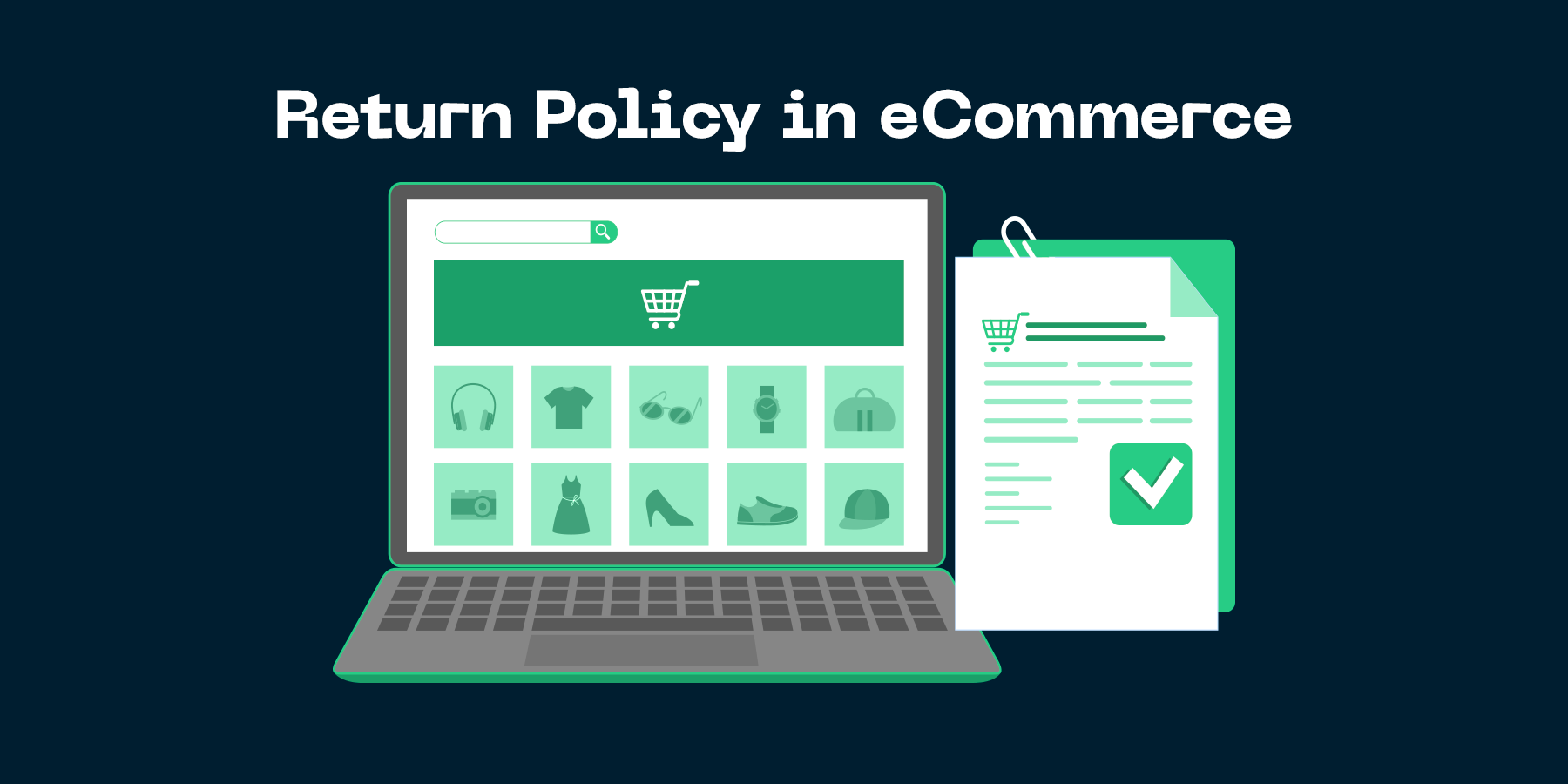Why Returns Are a Hassle: Hassle-Free Return Policy 2025

Understanding Return Policies
The Importance of a Return Policy
In the world of ecommerce, Understanding Return Policies is of immense importance. A clear, straightforward and hassle-free return policy not only builds trust among customers but also boosts your ecommerce store’s conversion rates. With the multitude of choices available to online shoppers, a complicated return process can easily motivate them to move on to your competitors. In contrast, a hassle-free return policy becomes a significant competitive advantage that encourages repeat business and creates loyal customers.
The importance of a return policy cannot be overstated. It is more than just a logistical necessity for handling unsatisfactory purchases. An effective return policy acts as a key differentiator in the ecommerce marketplace, providing a sense of security and confidence to potential buyers. Customers are more likely to buy from an ecommerce store that offers easy returns, as it eliminates the perceived risk associated with online shopping and gives them peace of mind.
Further, a liberal and easy-to-understand return policy also helps in reducing cart abandonment rates. Studies reveal that customers often abandon their online carts because of concerns about product suitability and the hassle of returning items. If your return policy is overly complicated or restrictive, it could discourage potential buyers and negatively affect your store’s conversion rates. Hence, it is pivotal to prioritize a customer-friendly return policy that is easy to find, understand, and execute.
Current Trends in eCommerce Return Policies
Understanding ecommerce return policies and their current trends is vital for any ecommerce store owner or marketer. The return policy can significantly impact a consumer’s decision to purchase, therefore influencing the store’s overall conversion rate. One of the biggest debates in this area is the choice between implementing a "hassle-free" or a "complicated" return policy.
Over the past few years, the trend in ecommerce return policies has skewed toward the "hassle-free" side. Businesses are realizing the value in making their return processes as easy as possible for the customer, and are implementing policies that reflect this. A hassle-free return policy can include elements such as free return shipping, longer return windows, and no-questions-asked returns. The goal is to reduce any potential friction or inconvenience for the customer, thereby encouraging more purchases.
On the other hand, a "complicated" return policy, while not as popular, can still be effective in certain contexts. This could involve stricter return windows, requiring original packaging, or charging for return shipping. The risk with a complicated return policy is that it could deter potential customers. However, it may also dissuade customers from making impulse purchases only to return the items later, saving the business from unnecessary costs. Therefore, it’s important for each business to carefully consider its own unique circumstances and customer base before deciding on its return policy.
Hassle-Free vs Complicated Return Policies
Defining Hassle-Free Return Policies
Defining a Hassle-Free Return Policy is integral to increasing conversion rates and overall customer satisfaction. In the world of ecommerce, where consumers cannot physically inspect a product before purchasing, an easy and effective return policy instills confidence and trust. A hassle-free return policy typically includes key features such as free returns, extended return windows, and a simplified return process that allows customers to return products without having to jump through unnecessary hoops.
On the contrary, a Complicated Return Policy can deter potential customers and negatively impact the conversion rate. Consumers dread tedious processes involving excessive paperwork, limited return windows, restocking fees, and the requirement to pay for return shipping. These can make a return process cumbersome and often dissuade customers from making a purchase in the first place.
Therefore, it is in the best interest of ecommerce store owners or marketers to adopt a Hassle-Free Return Policy. It not only encourages potential customers to finalize their purchases but also improves the brand’s reputation, leading to increased customer loyalty and, subsequently, higher sales. While hassle-free returns are no longer a true differentiator, they’re now expected, the way they’re presented can still shape perception. Subtle signals like these often tip the scale, especially when they fit into a broader differentiation and positioning strategy built on clarity and trust. On the other hand, sticking with a complicated return policy can lead to a loss of sales and negative customer experiences, essentially harming the business in the long run.
Defining Complicated Return Policies
As an ecommerce store owner or marketer, it’s crucial to understand the implications of a complicated return policy. A complicated return policy typically involves numerous steps, stringent conditions, and limited time frames. This can refer to policies that require the customer to pay return shipping, include a restocking fee, or provide original packaging. It can also mean policies that do not guarantee a full refund or those that have a very narrow return window. These can become a hindrance for customers and act as a deterrent, thereby affecting your conversion rate negatively.
In contrast, a hassle-free return policy aims to simplify the process and make it as straightforward as possible for customers. This involves fewer steps, more lenient conditions, and longer time frames for returns. Such policies can offer free return shipping, no restocking fees, and less rigid requirements about original packaging or tags. The objective is to reduce customer anxiety about making a purchase, knowing that if the product isn’t satisfactory, returning it won’t be a problem. This can significantly boost customer confidence, thereby increasing your conversion rate.
It’s important to strike a balance between protecting your business from return abuse and providing an excellent customer service experience. While it’s tempting to implement a complicated return policy to reduce the risk of return, it could potentially drive away customers. On the other hand, a hassle-free return policy might encourage more sales, but it could also be prone to abuse. The key is finding the middle ground that assures customers, keeps the returns manageable, and maintains your profit margin.
The Pros and Cons of Hassle-Free Return Policies
Advantages of Hassle-Free Return Policies
One of the biggest advantages of hassle-free return policies is that they can significantly boost consumer trust and loyalty. When customers know that they can easily return items if they’re not satisfied with them, they’re more likely to make purchases, potentially boosting your conversion rates. This is further emphasized when consumers are making riskier purchases, such as expensive items or gifts for others. An easy return policy reduces the perceived risk, thereby encouraging the purchase.
Additionally, hassle-free return policies can also serve as a strong differentiator between you and your competitors. With the rise of online shopping, it’s important for ecommerce businesses to stand out and offer superior customer service. A simple and straightforward return policy can help you do just that, making your store more appealing to potential customers.
Furthermore, a hassle-free return policy can indirectly foster customer satisfaction and positive word-of-mouth. If consumers have a positive return experience, they are more likely to share their experience with others, which can result in more business for you. While there might be some cons to consider with such policies, the potential long-term benefits to your brand reputation and customer loyalty are certainly worth considering.
Disadvantages of Hassle-Free Return Policies
While hassle-free return policies are often lauded for their ability to increase customer satisfaction and trust, they do come with their own set of drawbacks that could potentially impact your business negatively. One major disadvantage is the potential for increased return rates. With an easy return policy, customers may be more likely to make impulse purchases, only to return them later. This frequent return of merchandise not only brings logistical challenges but could also lead to substantial financial losses, particularly for small businesses.
Abuse of Policy is another notable disadvantage. Some customers may exploit your lenient return policy, repeatedly buying and returning items for reasons that are not related to product quality or performance. These practices, often termed "wardrobing" or "renting", may lead to substantial losses for your business. Moreover, they can create additional work for your team, as they deal with the logistics of managing these returns.
Finally, offering a hassle-free return policy might devalue your products in the eyes of the consumer. While this might sound counterintuitive, research suggests that consumers may perceive products from a store with a lenient return policy as being of lower value. In essence, they may associate the ease of return with a lack of confidence in product quality. This perception could ultimately harm your brand reputation and customer loyalty in the long term.
The Pros and Cons of Complicated Return Policies
Advantages of Complicated Return Policies
While simple return policies are often hailed as more customer-friendly, there are several compelling reasons why an ecommerce store owner might opt for a more complex return policy. The foremost advantage is deterring fraudulent returns. According to the National Retail Federation, return fraud costs retailers billions of dollars annually. By having a more detailed return policy, you enable your eCommerce store to protect itself from such unscrupulous acts.
Another significant advantage of a complicated return policy is that it can help improve inventory management. A more stringent policy might discourage impulsive buying and returning, which can wreak havoc on inventory forecasting and management. By setting clear and specific rules in your policy, like a shorter return window or stricter conditions for an item to be eligible for return, you can maintain better control over your inventory.
Furthermore, a precise return policy can lead to improved customer satisfaction in the long run. While it might seem counterintuitive, setting strong boundaries and clear expectations can prevent future disputes. It’s essential that customers understand what they can expect in a return situation, which can ultimately lead to fewer misunderstandings and greater customer satisfaction. Therefore, complicated return policies, with their inherent challenges, can provide surprising benefits to eCommerce businesses when implemented correctly.
Disadvantages of Complicated Return Policies
While some ecommerce businesses may be tempted to implement intricate return policies in the hopes of deterring unnecessary returns, there are several considerable drawbacks to this approach. The most obvious disadvantage is that complicated return policies can deter potential customers. In an age where consumers value convenience and efficiency, a complex return policy can be perceived as burdensome and discouraging, which may lead to abandoned carts and lower conversion rates.
Furthermore, unclear or complicated return policies can damage your brand’s reputation. Word-of-mouth is a powerful tool in the consumer world and unhappy customers are likely to share their negative experiences with others. If your return policy is viewed as problematic or unfair, it could potentially turn prospects away, reducing your customer base. This could also lead to negative reviews, which can significantly influence potential customers’ perceptions of your business and their decision to purchase.
Lastly, a complex return policy can strain your customer service resources. If your return policy is difficult to understand, you’re likely to face an influx of queries from confused customers. This will not only escalate operating costs but also divert your customer service team’s time and energy away from other critical areas of your business, impacting overall efficiency and productivity.
Choosing the Right Return Policy for Your eCommerce Business
Factors to Consider
When it comes to selecting the right return policy for your eCommerce business, there are several key factors to consider. One of the most significant points to ponder is the balance between being customer-friendly and maintaining business profitability. A hassle-free return policy might encourage more customers to make a purchase, but it can also lead to losses if too many items are returned. On the other hand, a complicated return policy might deter customers from buying in the first place, potentially leading to a decrease in conversion rates.
Customer Expectations - In today’s digital age, customers expect a seamless shopping experience, and that includes returns. If your return policy is too difficult or confusing, customers might choose to shop elsewhere. Therefore, it is essential to strike the right balance by creating a return policy that is easy for customers to understand and implement, while also protecting your business interests.
Cost of Returns - Another factor to consider is the cost of returns. While offering free returns might attract users, the cost associated with it can impact your bottom line. It’s essential to calculate the potential cost of returns, including shipping and restocking, and factor this into your overall pricing strategy. Alternatively, you may consider offering free returns on certain products or over a particular purchase amount to balance out the costs.
Impact on Conversion Rates
A robust return policy can significantly impact conversion rates, particularly in the eCommerce sector. Often, potential customers are hesitant to make online purchases due to the perceived risk of dissatisfaction with the received product. By offering a hassle-free return policy, you can alleviate these concerns and boost your conversion rates.
It is essential to understand that a complicated return process can deter customers. A study found that customers are more likely to abandon their shopping cart if they find the return policy complicated or unclear. This highlights the potential lost revenue and the importance of a straightforward, easy-to-understand return policy.
Contrarily, a simple, hassle-free return policy can act as a powerful marketing tool for your eCommerce business. It can instill a sense of trust and reliability in your customers, encouraging them to complete their purchases. Moreover, an effortless return process can also foster customer loyalty, further enhancing your conversion rate in the long run. Therefore, it is crucial to strike a balance - your return policy should protect your business interests while also catering to the customer"s need for security and convenience.



